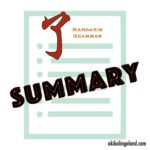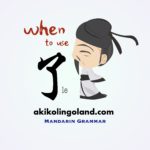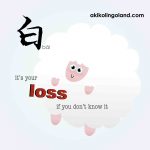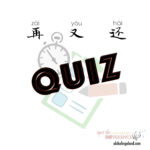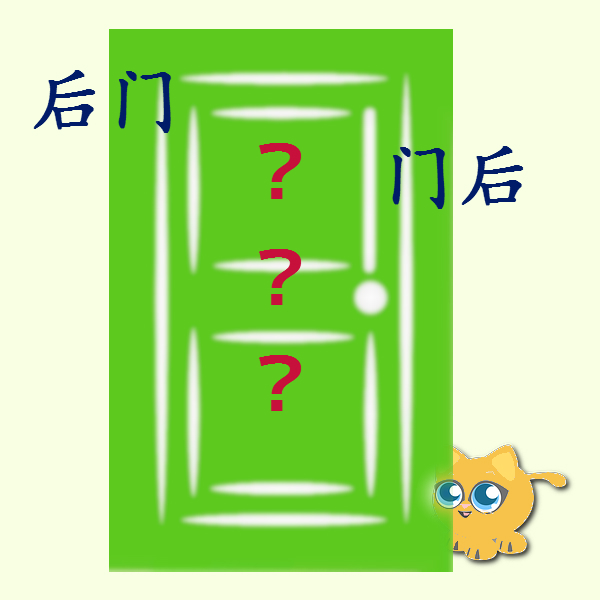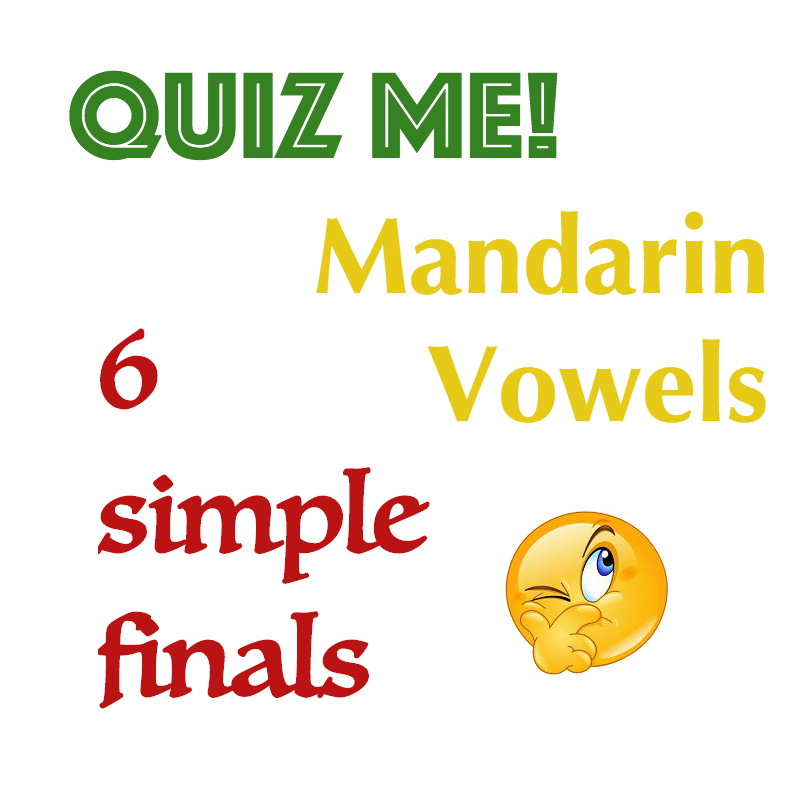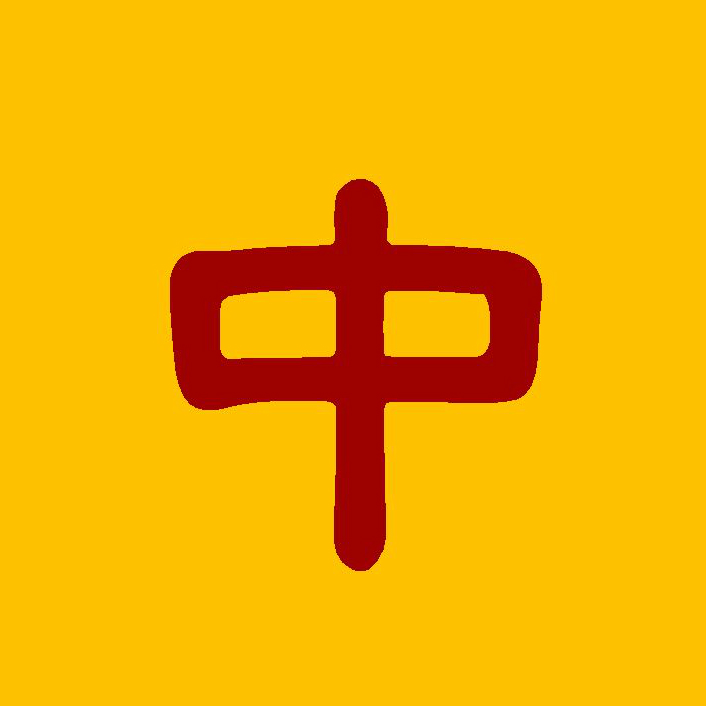Exercises on 了 le
Did you understand the lesson on 了 well? Now it’s time to test yourself!
A)
Choose the most probable response in each of the following dialogues. (Translation and answer key at bottom of page.)
1)Māma: Xiǎomíng, shuā yá le! Shuāle yá jiù shuìjiào.
妈妈:小明,刷牙了!刷了牙就睡觉。
Xiǎomíng: Māma, wǒ zǎoshang shuā le.
小明:妈妈,我早上刷了。
Māma:
妈妈:a.
Nǐ shuā yá le ma?
你刷牙了吗?
b.
Nǐ jīntiān chīle fàn le, míngtiān bù chī le ba?
你今天吃了饭了,明天不吃了吧?
c.
Nǐ shuì le ma?
你睡了吗? 2)
Māma: Xiǎomíng, qǐ chuáng le!
妈妈:小明,起床了!
Xiǎomíng:
小明:a.
Wǎn’ān.
晚安。
b.
Wǒ shuìjiào le.
我睡觉了。
c.
Wǒ zài shuì wǔ fēn zhōng.
我再睡五分钟。 3)
Xiǎohuā: Xiǎomíng, hǎo jiǔ bù jiàn!
小花:小明,好久不见!
Xiǎomíng: Hǎo jiǔ bù jiàn, Xiǎohuā! Yā, nǐ pàng le!
小明:好久不见,小花!呀,你胖了。
Xiǎohuā: Kěwù, nǐ zěnme zhème shuō!
小花:可恶,你怎么这么说!
Xiǎomíng:
小明:a.
Pàng le hǎo a, nǐ yǐqián tài shòu le.
胖了好啊,你以前太瘦了。
b.
Nǐ shòu le.
你瘦了。
c.
Wǒ pàng le.
我胖了。 4)
Māma: Xiǎomíng, zhè bāozi nǐ yǐjing chīle sān ge le, hái chī?
妈妈:小明,这包子你已经吃了三个了,还吃?
Xiǎomíng: Chī! ( )
小明:吃!( )a.
Wǒ bǎo le.
我饱了。
b.
Gēge chīle wǔ ge ne!
哥哥吃了五个呢!
c.
Wǒ chīle sān ge.
我吃了三个。 5)
Xiǎomíng: Xiǎolán zuótiān lái le, jīntiān yě huì lái ma?
小明:小兰昨天来了,今天也会来吗?
Xiǎohuā:
小花:a.
Tā jīntiān bù lái le.
她今天不来了。
b.
Tā jīntiān méi lái.
她今天没来。
c.
Tā zuótiān yòu lái le.
她昨天又来了。
B)
Determine if 了 can be used in (a)〜(o). (Translation and answer key at bottom of page.)
1)Tā xiǎo shíhou shì (a) ge kě’ài de n hái (b).
她小时候是 (a) 个可爱的女孩 (b)。
2)
A:
Wǒ jīntiān bù xiǎng kàn (c) diànyǐng (d), wǒmen xià cì zài kàn ba.
我今天不想看 (c) 电影 (d),我们下次再看吧。
B:
Nǐ zěnme xiànzài cái gàosu wǒ? Wǒ yǐjing mǎi (e) piào (f).
你怎么现在才告诉我?我已经买 (e) 票 (f)。
3)
A:
Nǐ zuìjìn hǎoxiàng shòu (g), shì bu shì tiāntiān yùndòng?
你最近好像瘦 (g),是不是天天运动?
B:
Shì tiāntiān yùndòng, kěshì méi shòu (h), gēn yǐqián yīyàng (i).
是天天运动,可是没瘦 (h),跟以前一样了 (i)。
4)
Yǐqián zhèli shì (j) gōngyuán, xiànzài shì túshūguǎn (k).
以前这里是 (j) 公园,现在是图书馆 (k)。
5)Yǐqián tā ài (l) wǒ, wǒ bù ài tā (m), xiànzài wǒ ài (n) tā, tā bù ài wǒ (o).
以前她爱 (l) 我,我不爱她 (m),现在我爱 (n) 她,她不爱我 (o)。
Answers
A)
1)
b.
Nǐ jīntiān chīle fàn le, míngtiān bù chī le ba?
你今天吃了饭了,明天不吃了吧?
2)
c.
Wǒ zài shuì wǔ fēn zhōng.
我再睡五分钟。
3)
a.
Pàng le hǎo a, nǐ yǐqián tài shòu le.
胖了好啊,你以前太瘦了。
4)
b.
Gēge chīle wǔ ge ne!
哥哥吃了五个呢!
5)
a.
Tā jīntiān bù lái le.
她今天不来了。
B)
1)
(a) ✗ (b) ✗
她小时候是个可爱的女孩。
2)
A:
(c) ✗ (d) 了
我今天不想看电影了,我们下次再看吧。
B:
(e) 了 (can be omitted) (f) 了
你怎么现在才告诉我?我已经买了票了。
3)
A:
(g) ✗
你最近好像瘦了,是不是天天运动?
B:
(h) ✗ (i) ✗
是天天运动,可是没瘦,跟以前一样。
4)
(j) ✗ (k) 了 (can be omitted)
以前这里是公园,现在是图书馆了。
5)
(l) ✗ (m) ✗ (n) ✗ (o) 了 (can be omitted)
以前她爱我,我不爱她,现在我爱她,她不爱我了。
If you’ve enjoyed this, don’t forget to share, and do join me on Facebook, YouTube, Twitter, Pinterest!


